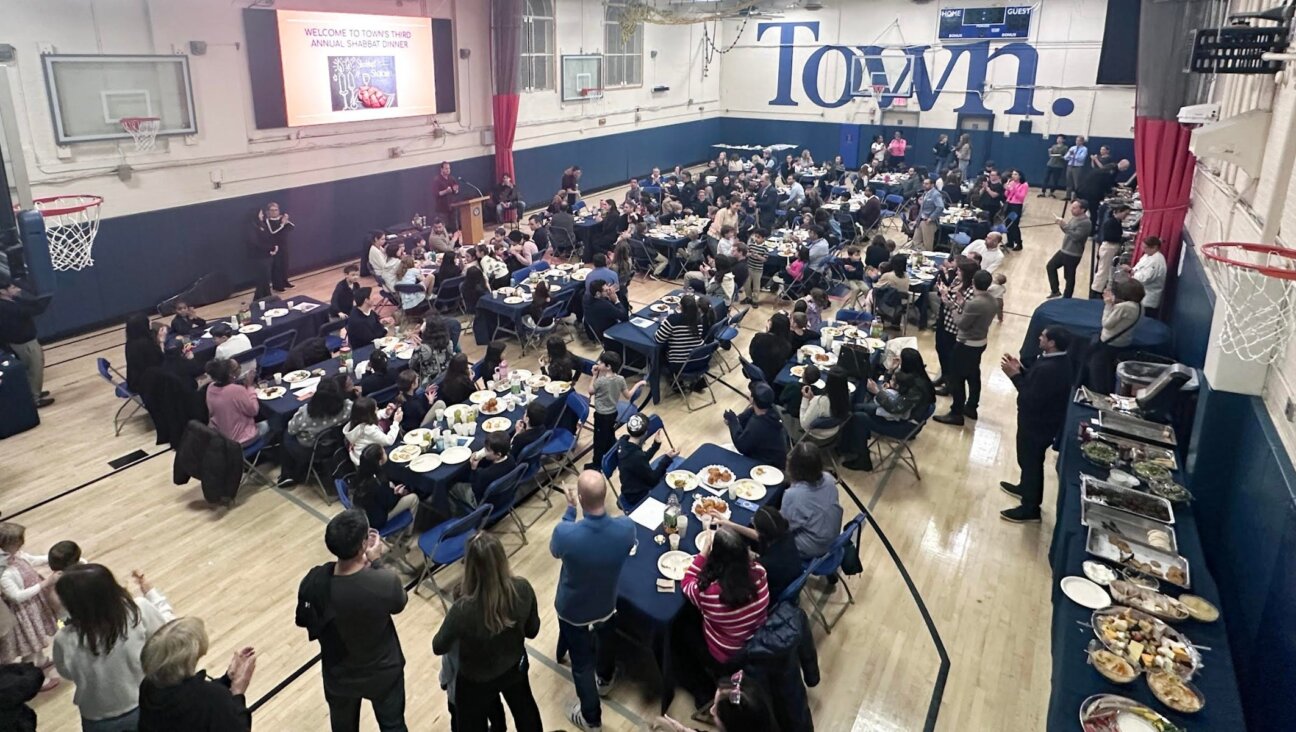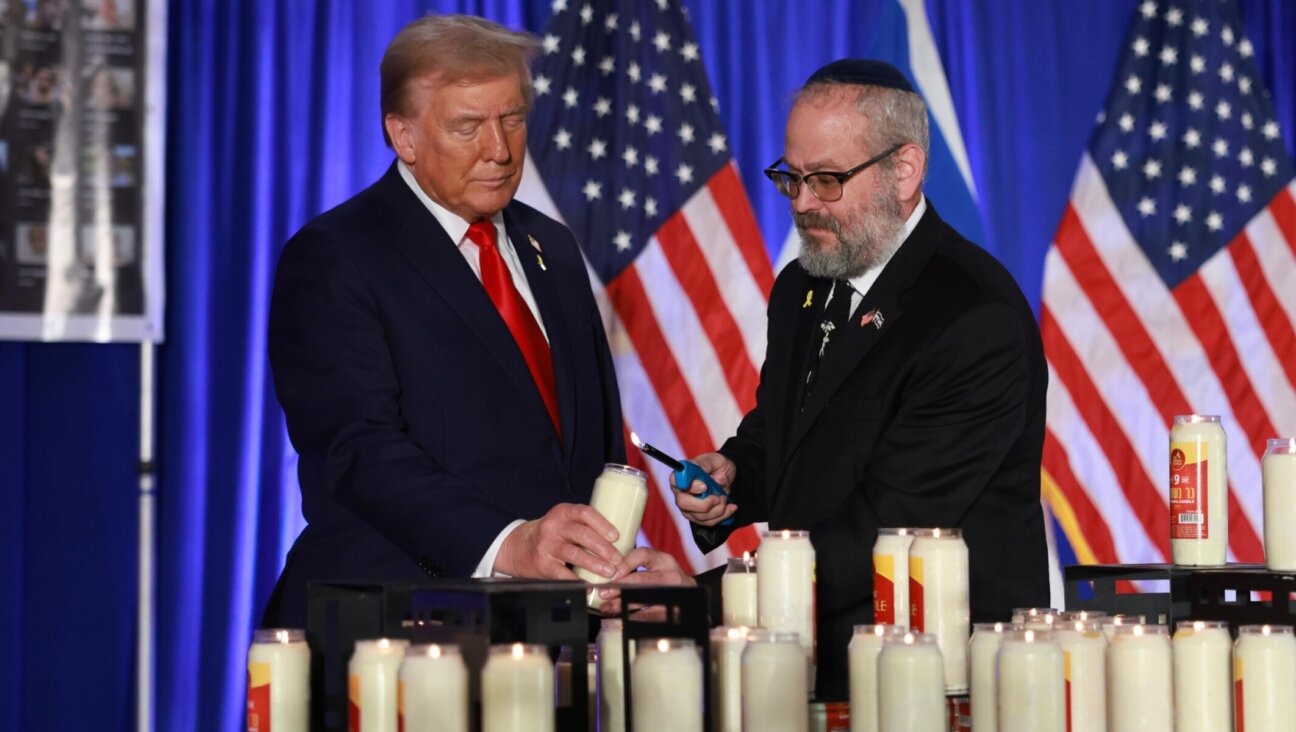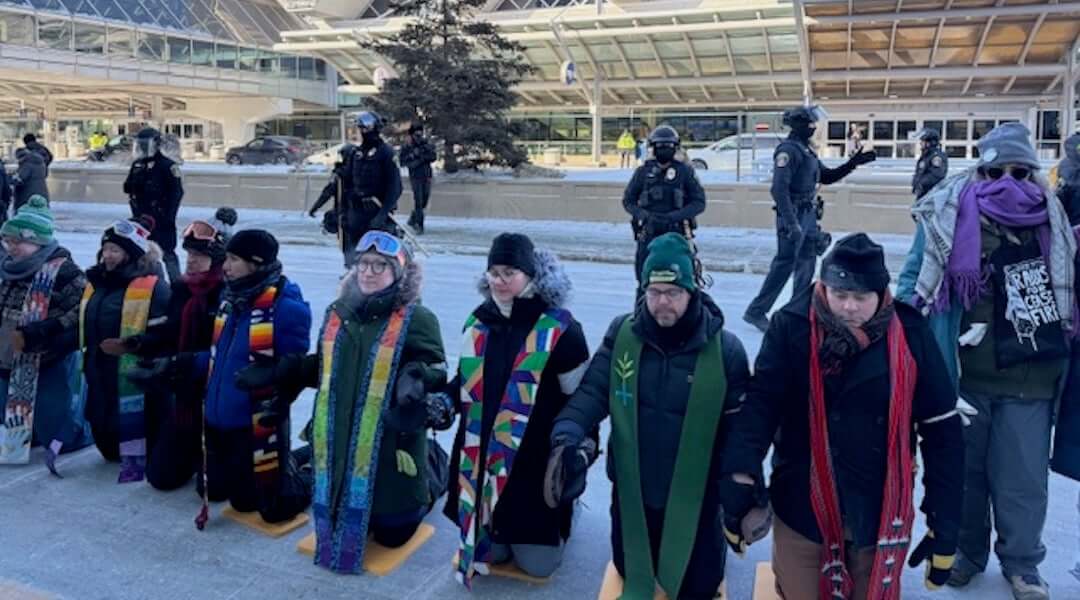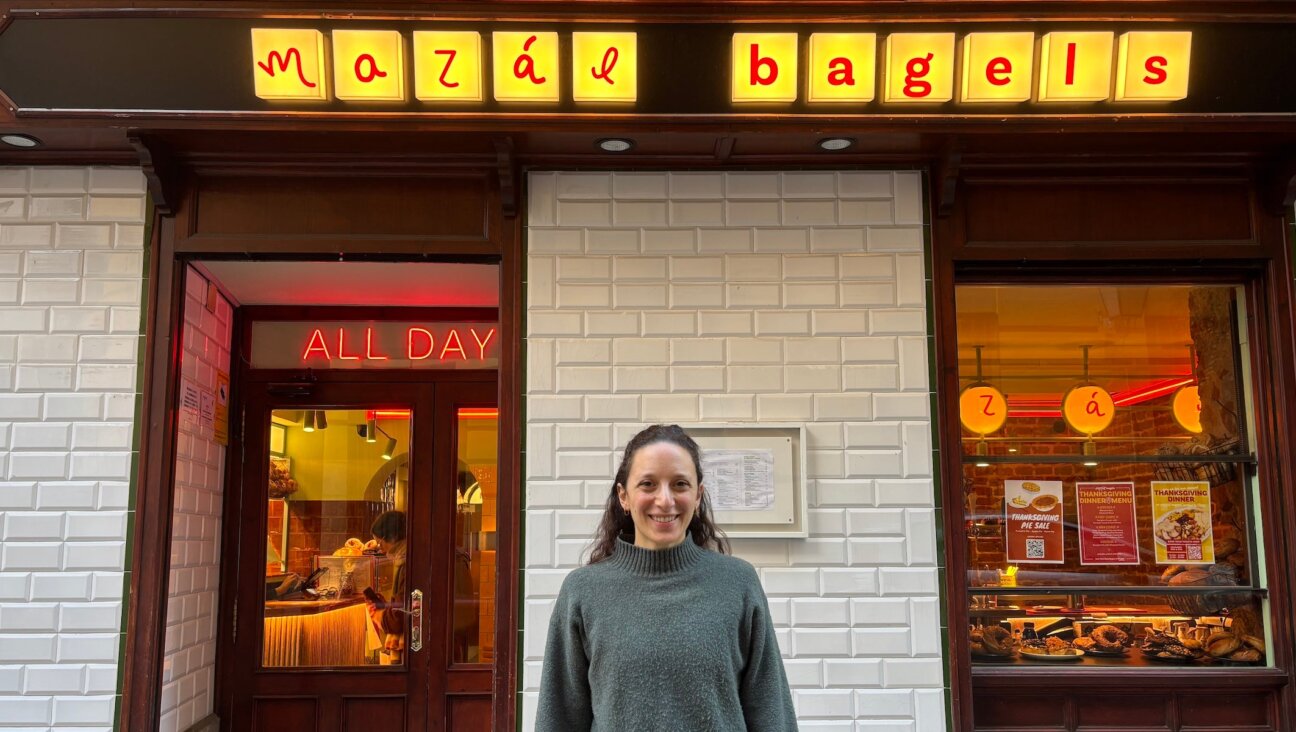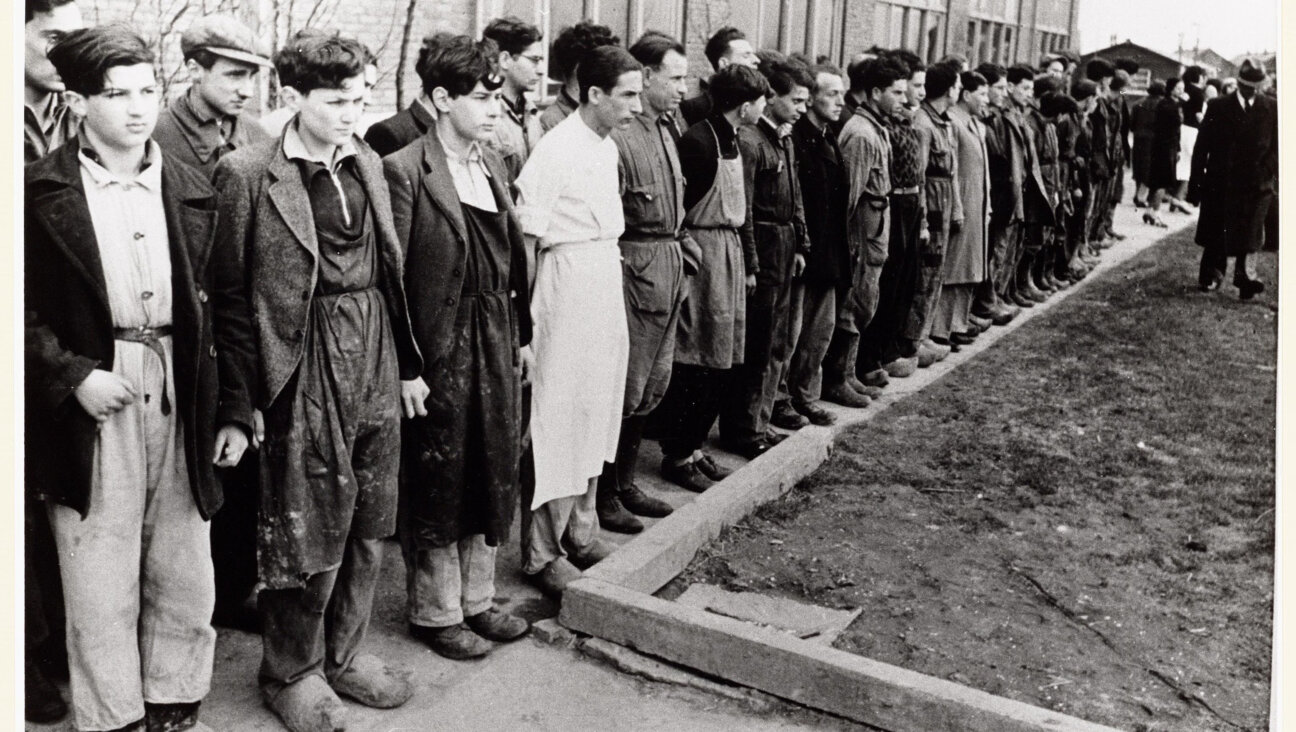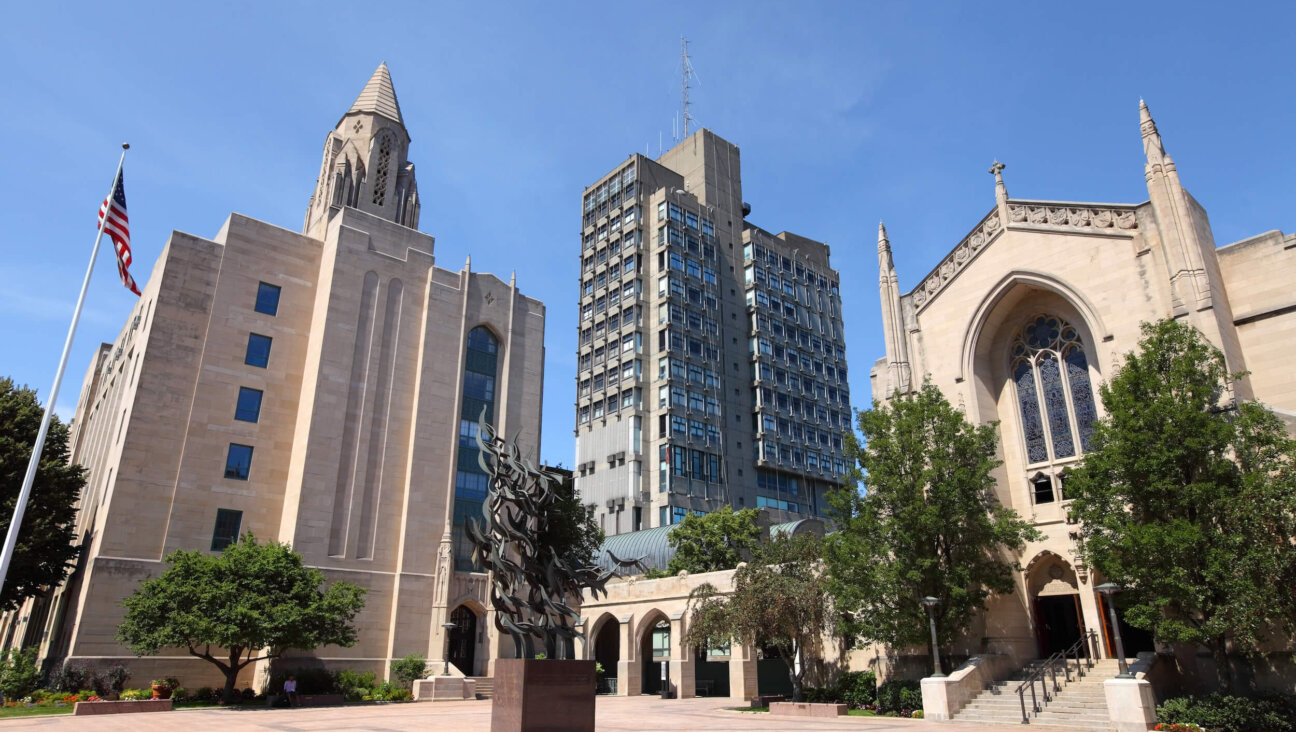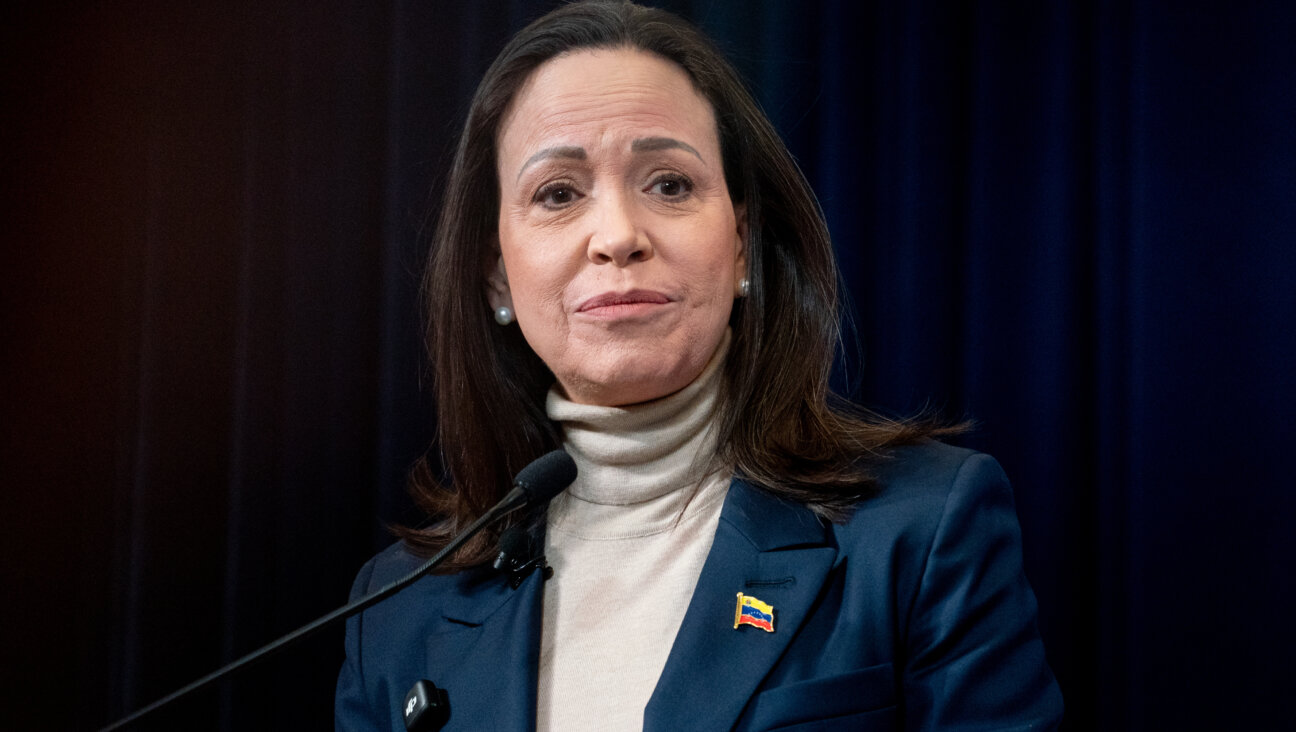In Post-Katrina New Orleans, a Reform-Orthodox Partnership Blossoms
An act of compassion to help a fellow congregation in need during the chaos following Hurricane Katrina has evolved over the course of four years into an unusual partnership spanning a Jewish religious divide.
Born of catastrophe, the unique partnership between the rabbis of two congregations in New Orleans – one Orthodox, one Reform – has brought together two disparate synagogues for social, educational and even ritual programs.
Now the partnership is set to receive concrete expression, when the Orthodox congregation breaks ground for its new building – to be built on the Reform synagogue’s property.
Soon after Congregation Beth Israel, a Modern Orthodox synagogue, was inundated by 10 feet of floodwaters in August 2005, the Reform temple Gates of Prayer offered a temporary home. Since then, Beth Israel has held services each week in the Reform chapel and leased office space at the temple.
At a ceremony last week commemorating Katrina’s fourth anniversary, Rabbi Robert Loewy of Gates of Prayer said he knew from the day he met Beth Israel Rabbi Uri Topolosky that the offer of hospitality soon would transcend mere neighborliness.
They had been introduced the Friday night that Topolosky came to town from his synagogue in Riverdale, N.Y., to interview for the position in New Orleans.
“After leading Beth Israel’s services in the chapel, Rabbi Uri walked through the building to our sanctuary, where our Shabbat services were just beginning, and he sat down in one of our pews,” Loewy recalled. “When I heard him singing along to the Reform tunes of the service, I knew he would become a partner. And even though I had driven my car to the synagogue that night, I walked him home.”
A graduate of Yeshivat Chovevei Torah, a Modern Orthodox rabbinical seminary whose mantra is openness, Topolosky said he was drawn to New Orleans by the prospect of cooperation with Gates of Prayer and, beyond that, with the entire New Orleans Jewish community.
Now the two rabbis set aside time each Friday morning to study together, bounce sermon ideas off each other, discuss how to advance the process of synagogue cooperation and “solve the world’s problems,” they said.
Joint initiatives at the congregations have sprouted from their partnership – what Loewy calls “finding ways to be Jewish together.” The congregations have held joint Israeli film series, Hebrew literacy programs and Jewish history classes. Implementing joint ritual programs has been more challenging.
Where ritual is not set in stone, the synagogues collaborate. For the Selichot service before Rosh Hashanah, they participate in a joint concert and then worship separately.
Some of the ritual interaction occurs naturally. During the High Holidays, when the Gates of Prayer sanctuary expands into the social hall adjacent to the chapel where Beth Israel worships, the singing of the female cantor wafts in. Throughout the day, some members of the synagogues go back and forth between the two services.
“We have stopped focusing on our differences and started focusing on what we share,” said Gates of Prayer president Janet Krane.
In the long hours of negotiations on building the new Orthodox synagogue on the Reform temple’s property, synagogue lay leaders focused on financial issues and other issues, like parking – but mostly on how they could make it work.
“The lay leaders kept trying to figure out how this could work out in the best interests of each synagogue,” Loewy said. “They kept asking the question, ‘How will this benefit the other group?’ ”
National Reform and Orthodox organizations, both of which sent substantial aid to the two congregations in their rebuilding efforts, have supported the model of cooperation.
Rabbi Brian Zimmerman, Southwest Regional director of the Union for Reform Judaism umbrella group, noted the importance of the model given the current financial crisis, when so many congregations have looked inward.
“Beth Israel and Gates of Prayer have shown us that looking and reaching outward makes us stronger,” he said.
Locally, their close relationship is one of the many silver linings of Katrina that now animate the New Orleans Jewish community.
“On the fourth anniversary of Katrina, people are looking forward, not back on what we lost, but on how can we improve what we have,” said Michael Weil, executive director of the New Orleans Jewish Federation.
“Frankly, before Katrina, New Orleans was a declining Jewish community. Now we are upbeat and energized. The 900-plus newcomers who have chosen to live in New Orleans since the storm are a clear sign that New Orleans is the place to be, that we have a rosy future.”
